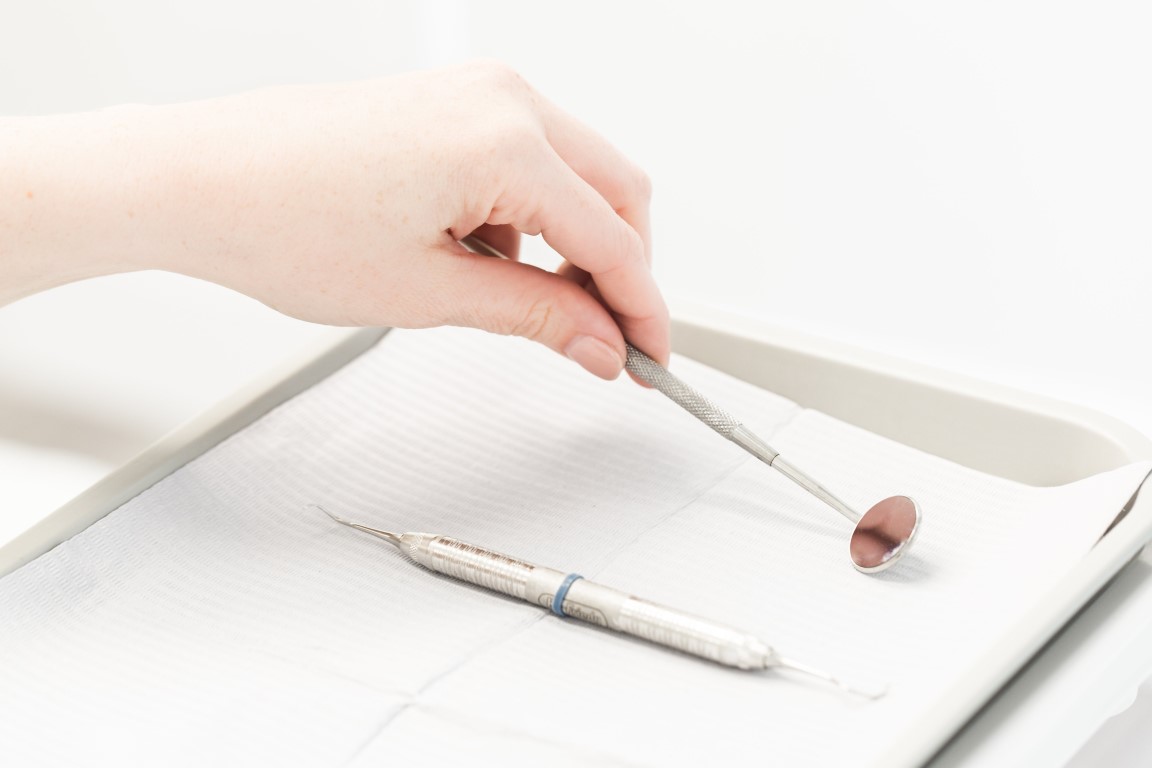Trench mouth occurs when bacteria accumulates in the mouth and causes an infection. This infection is characterized by bleeding, painful ulcers and gums in the mouth. If you think you have this condition, or any dental issue, it is important that you visit the Upper Hunt Club Dental Centre in Ottawa as soon as possible.
What is Trench Mouth?
During World War I, soldiers in the trenches were unable to practice proper oral care regularly. This resulted in these soldiers developing oral infections, including trench mouth, also referred to as necrotizing ulcerative gingivitis. While rare today, when it does occur, it can be a serious problem.
Symptoms
Timely treatment is imperative when you have trench mouth. To get a prompt diagnosis, you should be able to recognize the symptoms:
- Abnormal taste in your mouth
- Craterlike ulcers in your mouth
- Fever
- Swollen, bleeding or red gums
- Bad breath
- Fatigue
- Pain in your gums
- Your gums develop a grayish film on them
If this condition goes untreated, it can get worse. You are at risk for losing teeth if the crater-like ulcers are not treated. In some cases, even with treatment, the craters cannot be corrected, increasing your risk of tooth loss.
Causes
This condition results from an infection of the gums that stems from excessive harmful bacteria. This is an advanced infection. If you have gingivitis, you are at a higher risk for developing trench mouth. The following are possible risk factors:
- Poor nutrition
- Stress
- Mouth, throat or teeth infection
- Diabetes
- Poor dental hygiene
- Smoking
- Weakened immune system
- HIV/AIDS
Getting a Diagnosis
A prompt and accurate diagnosis is imperative. Your dentist will start by examining your teeth and gums to look for the visible signs of trench mouth, such as bleeding and the craterlike ulcers. They will also look to see if you have swollen lymph nodes and a fever. To determine the severity of the infection, your dentist will take dental X-rays. These can show the level of tissue destruction that has occurred. In addition, your dentist may perform a throat swab culture. This helps them to determine which bacteria is present. This is a simple test that involves using a sterile cotton swab that collects a sample of the bacteria along your throat to your tonsils.
Treatment Options
Treatment is focused on alleviating your symptoms and curing the infection. If you have a fever, your dentist may prescribe antibiotics, such as erythromycin, amoxicillin or tetracycline. Most of the treatment you will do at home according to your dentist’s instructions:
- Floss and brush your teeth twice daily, but if possible, do this after every meal
- Perform salt water rinses according to your dentist’s recommendation
- Rinse your mouth with diluted hydrogen peroxide to remove dying or dead gum tissue per your dentist’s instructions
You may also be recommended an antiseptic, called chlorhexidine, that you can swish in your mouth to rinse it. To reduce your pain, you may be suggested over-the-counter pain medications, such as acetaminophen. If your pain is severe when you eat, your dentist may prescribe a lidocaine gel that you can apply to numb your gums so that they do not hurt as much.
Before prescribing home treatments, a thorough professional cleaning may be performed. If your pain is significant, your dentist can numb your mouth before they start the cleaning. Until your trench mouth is resolved, you may need more frequent professional dental cleanings.
Prevention
If you have any of the risk factors of trench mouth, talk to your doctor about them. For example, if you have diabetes, keeping your blood sugar under control can be beneficial. If you smoke, starting a smoking cessation program can reduce your risk. Your doctor can also evaluate your nutrition to determine if it is adequate. Make sure to see your dentist every six months for a cleaning and examination. You should also practice good oral hygiene every day by brushing and flossing your teeth.
If trench mouth is left untreated, it could lead to rapid gum tissue destruction and spread into nearby tissues, such as the lips, jaw bones and cheeks. Because of this, it is imperative to seek help from the Upper Hunt Club Dental Centre in Ottawa as soon as possible once you suspect this condition. Make sure to contact us today to book an appointment.













